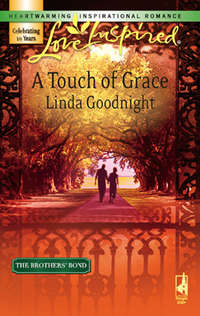
Полная версия
The Rain Sparrow
“Ought to be coming up on my stop soon and then Chattanooga not long after.”
He’d no more than spoken than the train began to slow and the brakes squealed. A shrill whistle nearly split his eardrums.
“This yo’ stop right here?”
“This is it.” A water stop for the train, and a place for passengers to disembark or board that wasn’t much more than a handful of clapboard buildings. “I hope you find your family, Abram. If you ever get up around Honey Ridge, stop in and say hello.”
Thaddeus hoisted his satchel and rose, turning to offer a hand to Abram. The ex-slave seemed momentarily taken aback before he clasped Thad’s hand with a grin. “Good luck to you, Mr. Thaddeus.”
Steam smoke swirled around Thad’s face as he disembarked, and the strong odor made him anxious. He knew the scent came from the train and yet the memory of the fire that had stolen too much haunted him more than the years of unrelenting battle.
He glanced around at the tiny town, then toward the rising blue haze that would be the Smokies to the east and the rolling countryside that spread in every direction in undulant shades of green. The landscape across Tennessee was beautiful, even though too many burned farms and ravaged villages littered the countryside like the dead Confederacy.
Weary but hopeful, Thad aimed toward a sign proclaiming General Store in search of information. If he was fortunate, someone would share an easy route to Honey Ridge. If he was very lucky, he might even find a wagon headed in that direction.
His boots echoed in the hot afternoon as he stepped through the doorway into the tiny store. The inside was dim and smelled of coffee and leather and hog grease. Shelves stuffed tight with an array of goods lined the walls of the narrow room, a promising sign. Three men stood talking around a spittoon, while a white-haired merchant wrapped a length of brightly printed calico in brown paper.
Thaddeus approached the merchant. “I’m headed for Honey Ridge. Might you direct me toward the best route?”
Nimble fingers paused in tying the package. “I might.”
Thaddeus waited, but the merchant didn’t say more.
One of the tobacco chewers, a short, squat man with a big nose, approached. “Where you from, boy?”
It wasn’t the first time he’d answered that question, though not everyone across the South had been unkind to a former Yankee soldier. There were sympathizers in Tennessee, including the rosy-cheeked woman who’d sold him a loaf of bread and thrown in some dried apples for good measure. Thaddeus had a feeling this man wasn’t one of those.
He sighed. “Ohio.”
The man spat a long stream of tobacco, narrowly missing Thad’s boots. Thad followed the insult with his eyes.
“Yankee.” The man bit off the word as if it left a nasty taste. He looked to his friends, both of whom stared at Thad with more than a little animosity. The one in red suspenders tilted back to stare and Thad saw what he’d missed. One of the men was missing a leg. A soldier, no doubt. A Rebel. Probably all three of them had been.
“I’m not looking for trouble,” Thaddeus said. “Just directions.”
“You won’t find them here.” The man ran his hands under his suspenders. “You best head on back to where you come from.”
The tiny hope that he might purchase some food or even share a ride on a farmer’s wagon dissipated in the dark confines of the general store.
The merchant kept his attention on the parcel now neatly wrapped and tied with string.
Thaddeus gave a head bob and walked outside. A hundred yards down the track, the train chugged onward toward Chattanooga, its smoke a gray feather tickling the blue sky.
The air was sticky and thick. Nights would be cooler, though every bit as humid. Will had sent him a map, drawn by his own hand. A former army captain who’d campaigned all over Tennessee, William Gadsden would be accurate. The trip to Peach Orchard Farm was a long one, especially without food, but nothing to a man who had marched with a hungry infantry for three years.
He shouldered his satchel and started walking.
* * *
“You can’t. I won’t have it.”
Josie Portland tossed down her napkin to glare at Will Gadsden across a long oak table that had fed four generations of Portlands. Portlands, not Gadsdens. The former Union captain had married her late brother’s widow, and now the uppity Yankee thought he owned Peach Orchard Farm and Mill.
“Josie, please,” Charlotte said mildly. “Don’t fuss.”
“Fuss? You expect me to sit back and let more and more of the enemy invade my home? Haven’t we lost enough?”
Will’s jaw tightened. “The war is over, Josie. We are not enemies.”
“Tell that to Tom!” The chair scraped against a floor where dozens of wounded had once sprawled in bloody misery. Josie bolted upright. Heat swamped her, burning her cheeks. She fought hot tears, ever present at the mention of Tom.
Four pairs of eyes watched her. Her sister, Patience, as sweet and holy as Mother Mary herself, looked baffled as she usually did by any kind of disturbance, while her nephew, Benjamin, clearly sided with Captain Will. He always did. Admittedly, Will had been good to the eleven-year-old after the tragic death of Ben’s father.
Lizzy’s dark face appeared at the kitchen door, eyes wide. Charlotte’s former maid was one of the few slaves who’d stayed behind to work for provisions and little else. They were all like slaves now, doing what they could to survive.
“Josie, sit down please and let’s speak of this sensibly.” Charlotte folded her hands together on the edge of the table as calm as bath water. Ever serene, the British vicar’s daughter was too pious for Josie’s liking. Never a bad word, never a complaint, no matter how awful things had been since the war. At times, she didn’t know how Charlotte had kept the farm and the mill going, though her sister-in-law gave credit to God and the handful of crippled Yankees and former slaves who’d stayed to help.
Certainly, Josie comprehended all that her brother’s widow had done. She wasn’t a fool. If not for Charlotte’s stiff resolve and clever wrangling, they would have lost the farm and mill to Yankee carpetbaggers. Nevertheless, Josie wanted her life back the way it was before the hated war, before Father and her brother, Edgar, had died.
“Why couldn’t you hire someone from Honey Ridge?” Her chest heaved beneath the hatefully dull brown dress. She was so angry her face must be as red as her hair. “Why do you have to hire a Yankee?”
“Because no one here has Thad’s skills. He’s from a family of millers. He is a millwright as well as a miller, which means he can repair the machinery and make improvements. He can teach us what we need to know to make the operation smoother and more profitable.” Will lifted the letter he’d received earlier that day. The hateful letter he’d read to them over a supper of dumplings and stewed fruit. “We are fortunate he’s agreed to come.”
“You’ve been doing fine by yourself,” she spat, though the compliment cost her. Will was a decent man for a Yankee, but he was still a Yankee. Men like him were the reason her Tom had never come home from the bloody, horrible war. They were the reason so many women like her cried for sweethearts still missing or buried in some remote place without so much as a name marker. They were the reason she would never wear Mother’s wedding gown.
“I’ve barely kept things going, Josie. The mill needs repairs that I can’t do, and even if I could, I haven’t any more hours in the day. I need Thad, and he is already on his way. He’s a fine man who’s had his share of loss, and I expect you to treat him with respect.”
Helpless fury shook her. Let Thaddeus Eriksson come if he must, but Josie would do her best to make his visit short and miserable.
She would choke before she’d show respect to another bloody Yankee.
5
You must stay drunk on writing so reality cannot destroy you.
—Ray Bradbury
Present
Hayden awoke with a jerk, disoriented as he stared into a nineteenth-century fireplace. Where was he?
He sat up, heart chugging with the hard rhythm of a train. Except for the blue glow from his laptop, asleep but powered on, heavy darkness shrouded the room.
The dream had been so real. Even now when he was awake, Thaddeus’s sorrow lay heavily in his chest, as real as if he had suffered the loss of a wife and child. He’d smelled the smoke, looked into the eyes of the ex-slave and sat at the dinner table with the Portland family.
“Weird,” he muttered. He’d dreamed scenes from his work before but never anything like this. These characters were realistically familiar, as if he knew them. As if he was them.
Blowing out a shaky breath, Hayden tapped the keyboard to shed more light on his surroundings. The tiny digital clock in one corner said he’d slept a few hours. Dawn would break soon.
His senses slowly returned as he recognized the antebellum inn and recalled why he was in the parlor instead of in the cushy bed upstairs in the Mulberry Room. Still, the dream lingered and the strong emotions persisted.
In his imagination, the computer clock morphed into a silver pocket watch, glinting in the Tennessee sun.
He scrubbed his face with both hands, uncomfortably aware that the dream man, Thaddeus, had done the same.
Thaddeus, Abram, Josie. Three fascinating characters who had nothing to do with the kind of book he was contracted to write.
Yet the rich images prodded at his imagination, stirring the creative hunger.
Before the gauzy cobweb dream was cleaned away by the hand of wakefulness, Hayden grabbed his computer and began to write.
By the time he purged his memory, morning had broken through the drapes in September’s pure yellow-white streaks, and delicious scents wafted from the kitchen, waking his senses and his taste buds. If Julia had found his presence in the parlor odd when she’d come through at dawn, she’d said nothing. A short time later, she’d placed a fresh cup of coffee next to him. He’d called her a goddess.
The classy blonde innkeeper had simply smiled and padded quietly away, a courtesy he appreciated. He didn’t like interruptions when he worked. In fact, he didn’t like people when he worked. He supposed his assistant had relayed that persnickety piece of information when she’d booked the room for an indefinite period of time for enough money to get him anything he wanted. Today he would express his desire for a coffeemaker. Or he’d go into town and buy one. He wasn’t a purist. Any old cup of java worked, though he appreciated Julia’s freshly ground beans.
He sipped the rich, bold grind, a reminder of Carrie, the squeaky cute librarian, his fellow storm watcher from last night. He wondered if her jittery nerves had finally settled enough to sleep.
When he heard a man’s voice in the kitchen, his curiosity got the better of him. Ready for a refill, he hit Save and closed the laptop. Forget the dream. He didn’t write historical novels.
Right now he needed coffee.
Upon reaching the kitchen door, he stopped, amused. Innkeeper Julia and a dark-haired man were locked in a passionate kiss. If Hayden were polite, he’d do the well-bred thing and slip out again. But he was a writer and therefore fascinated by the innate bonds that attract male and female, sometimes to their joy and every bit as often to their detriment.
As the pair broke apart, rather reluctantly if he was any judge, the man noticed him and said, “Caught again.”
Julia made a soft noise, flushing slightly, as she turned and offered a sheepish but glowing smile.
“Hayden Winters, this is my fiancé, Eli Donovan, who apparently returned to the carriage house late last night without warning me.” Her June-blue eyes flashed adoration at her fiancé. “Eli, Hayden is a newly arrived guest.”
Eli extended a hand, though he seemed to regret releasing his hold on Julia. Who could blame him? Love was a beautiful thing. For other people.
“A pleasure, Hayden. I read your books.”
“Thank you. I apologize for interrupting.” Not that he meant it. “Mind if I snitch another cup of coffee?”
“She makes the best.” Eli took Hayden’s cup and refilled it. “How was your room?”
“I’m not sure.”
Julia, who now peered into the oven, looked up with a frown. “Was something wrong?”
“Not at all.” He told her about Brody but skipped the dream.
“For heaven’s sake.” She gazed up at the ceiling as if she could see the boy wrapped in sleep and the plush bedding of the Mulberry Room. “That poor child.”
“I hope you don’t mind.” Being a good guest often reaped benefits. “You can charge me extra if you’d like.”
“For what? Being nice enough to rescue a little boy from the storm? For giving up your own night’s rest?”
“I slept a little,” he said, and the dream pushed in. He pushed back.
“Speaking of kids,” Eli said to Julia. “How’s my son?”
“Good as gold and sweet as pie. He missed his daddy, though.”
“I’ll run up and see if he’s awake.” Eli grabbed her for another kiss that left him grinning and her flustered. “Save me some bacon.”
Hayden took his coffee out on the long wraparound veranda, propped up his feet and watched morning slide across the emerald-green magnolias. The large shady yard was littered with leaves dispatched by last night’s wind, the grass glistened, still wet, and the flowers along the porch front drooped, too battered by the storm to lift their colorful heads. But the rain-washed air smelled glorious-fresh and moist and clean like the Appalachian woods in spring.
He found it interesting, if a bit pathetic, that even after all the years away, after all the fabrications, the success and money, he missed the green hills and deep, secret hollows, the crystal creeks and thick woods of Appalachia. Coming to Tennessee reminded him starkly of the home from which he’d escaped at sixteen. He could almost smell the Smoky Mountains to the east, like his Kentucky Mountains, a part of the long Appalachian chain that had once split east from west. With a kind of nauseating nostalgia, he’d driven the rental car around the curves of roads populated only by horse pastures or thick woods and shadowy secret trails the country boy still hiding in him longed to explore.
At his back, an old-fashioned wooden door opened and the blue Australian shepherd he’d seen yesterday trotted out for his morning business, black nose to the sparkling wet grass. Carrie appeared, carrying her own cup of coffee. Hayden whiffed the spike of vanilla flavoring she’d added, along with Carrie’s own scent, fresh and clean with a spicy edge of mystery.
“Good morning.” Her voice was throaty, a rough morning sound that sent his mind spinning down inappropriate avenues, to tumbled beds and warm, sleep-drenched interludes.
His head lolled in her direction. Her short hair was slicked back in a headband, her pale skin scrubbed pink and void of makeup. Over a blue print dress, she’d tossed a jean jacket against the morning chill. Simple and charming.
“You didn’t sleep long,” he said, not minding that she’d interrupted his solitude.
“When the sun rises, so do I. It’s a nasty habit left over from college when I’d get up early to cram before class.”
He arched an eyebrow. “Late nights?”
“Uh-huh. Slinging macchiatos.”
“Ah, yes, the wild midnight barista,” he said with a slight smile.
With an answering curve of bowed lips, she leaned against the veranda railing and sipped at her coffee. “Get any writing done?”
The dream rushed in, the people, the train, the watch, disturbing in a way that carried undercurrents he hadn’t quite put his finger on. The dream itself had not been terrible, not like the killers who stalked the edges of his thoughts and littered the pages of his books. Those didn’t disturb him at all.
“Some.”
“Did you kill anyone? Metaphorically speaking.”
“Will you be disappointed if I say neither metaphorically nor literally?”
She laughed, and a single dimple flashed at the corner of her mouth. She had a sweet face, made even more innocent by her round puppy-dog eyes and fresh-scrubbed style. She was doubtless younger than him by several years and a lifetime of experiences he wouldn’t wish on anyone. A small-town woman protected by and comfortable in the bosom of familiarity.
“Have you checked on Brody yet?” she asked.
“Later. He needs the sleep.”
“That’s what I thought, too.”
“Great minds.” He stretched his legs out on the porch, propped his crossed ankles on the railing.
“When he wakes up, I’ll drive him home.”
“Nice of you,” he said, though he would have made the same offer. He was curious about Brody’s home life, curious to know why the kid had lied and didn’t want to go home. He was also gritty-eyed from lack of sleep and wouldn’t mind a few hours’ sack time on the pillow top upstairs.
“I’m going that way. Might as well give him a ride.” She sipped again, dainty and ladylike, fingers on the handle and the opposite hand beneath the cup. “Thank you for keeping me company last night.”
“Storms really scare you that much?” He wanted to probe deep, his usual response to anyone’s fears because, quite frankly, he could use the information in a book. Psychology, even one’s own, provided powerful motivation.
“The fear is silly, I know, but they do. Always have. I owe you one.”
“Count us even.” He toasted her. “You knew where to find the coffee and cookies.”
He thought of her pretty pink toes and hid his grin with the coffee mug. The lack of sleep and the bizarre dream were giving him weird thoughts.
* * *
The kid didn’t want to go home.
Hayden figured that out about two minutes after stepping into the Mulberry Room with Brody’s dry clothes.
Still in the baggy sweats, the Huck Finn look-alike stood in front of the bathroom mirror. He’d wet his sandy-colored hair and was doing his best to slick down a frontal cowlick with both hands.
Hayden tossed him a comb. It would wash.
“When you get dressed, come down to the dining room. Julia has breakfast ready.” Hayden hung the dried clothes over the towel bar. “After breakfast, Miss Carrie will drive you home.”
The kid tensed, the comb flush against his wet hair. He kept his focus on the mirror, but Hayden could see the wheels turning. The kid’s body language spoke volumes.
“I’m okay. She doesn’t need to do that. I can walk.”
“A ride’s no problem. She lives in town and is going that way. See you downstairs.”
Hayden left before Brody could argue or come up with an excuse, though he didn’t know why it mattered. He was here to write a book, not get tangled up with some wayward kid.
The chatter of too many voices met him at the bottom of the crimson-carpeted stairs. He’d expected other guests, but when he walked into the red-walled dining room, one china-laden table was flooded with animated, laughing, gesturing women. Carrie was one of them.
The only males in the room, Eli Donovan and a small black-haired boy who could only be his much-missed son, sat next to a double window overlooking a backyard garden. Their plates were loaded with French toast, fruit and bacon, and the smell was enough to make Hayden’s mouth water.
“You’re surrounded,” Eli said wryly with a tilt of his head toward the female contingency. “Might as well enjoy it.” He pushed at an empty chair. “You’re welcome to join us.”
Hayden did, though he overheard the women’s chatter, gleaned bits of gossip, catalogued names. Julia slipped away from the others to bring his breakfast and more coffee.
When Brody appeared in the arched doorway, Hayden almost laughed. The kid looked shell-shocked, either by the abundance of estrogen or the opulence of the breakfast room.
Carrie saw the boy, too, and sent a smile in his direction. “Good morning, Brody. You look better.”
Brody offered a shy grin and made his way, silent as a memory, to what Hayden thought of as the guys’ table.
“They don’t bite,” he promised.
With a flourish, Valery placed a glass of orange juice in front of the boy. “In fact, girls can be kind of handy. Do you like bacon?”
“Yes, ma’am.”
“French toast?”
This time the boy floundered. He stared at his juice.
“Ever had French toast, Brody?” Hayden asked gently.
The boy shook his head.
“Might as well try it,” Valery said. “Julia makes the best.”
“It’s sort of like pancakes, only better,” Hayden said.
This brought Brody’s head up. “I love pancakes.”
“There you go, then. French toast with plenty of powdered sugar and syrup coming right up.” Valery flounced out of the room like a flamenco dancer. The innkeeper was flashy, a head turner, with dark hair curling around her shoulders and bright red lipstick.
Food was served, and Brody ate like a starved pup, speaking only once to say, his mouth stuffed with French toast, “This is good.”
The exceptional meal made Hayden sleepy and lethargic. If he ate like this every day for the next few months, he would have to do some serious walking or find a gym.
During the meal, he made polite conversation with Eli and listened to sweet exchanges between the father and son that stirred thoughts of his own father. Donald Briggs had been his light in a dark childhood and when that light went out, Hayden had been lost. If not for an English teacher who had seen his talent, he’d still be lost, likely in the same drug-dulled world that had sucked Dora Lee under.
Eli’s son, Alex, finished his meal, hopped down from his chair and hugged his father. “I missed you, Daddy.”
Hayden experienced a pinch beneath his breastbone. He missed his daddy, too.
Hayden tossed his napkin on the table. He must need sleep worse than he’d thought.
* * *
Brody was stuffed. He couldn’t remember when he’d tasted anything as good Miss Julia’s French toast.
With both hands on his full belly, he leaned back in the seat of Carrie Riley’s Volkswagen Bug. The inside smelled good, like something strawberry coming from a little tree dangling from the rearview mirror. Miss Riley smelled good, too. He always noticed that about her when she helped him with something at the library. She smelled like cinnamon, he thought. Or maybe gingerbread. The smell was nice, like her. She was always nice to him, and sometimes he imagined his mother had been like her or like Mrs. Timmons, the art teacher, who told him he had talent.
He liked drawing animals, especially wildlife like Max, but the Sweat twins let him draw their parrot, too. Mrs. Timmons said Binky was his best work, and she’d entered the picture in the county art show.
“What grade are you in this year, Brody?” Miss Carrie asked as they pulled out of the driveway onto the pavement leading into Honey Ridge.
“Fifth.”
“Who’s your teacher?”
“Mrs. Krouper.”
“You like her?”
He hiked one shoulder. “She’s okay.”
“I’ve heard she’s pretty strict.”
“Yeah. She sent me to detention for a whole week.” He didn’t know why he’d told her that. Maybe because his belly was full and he’d slept in that soft bed last night, where he’d dreamed of riding a horse. He’d always wanted to ride a horse.
Miss Riley grinned at him. “Uh-oh. What did you do?”
“Nothing.”
When she hiked an eyebrow, he felt compelled to explain. He didn’t know why. He just did.
“There’s this boy. He’s a bully, but no one does anything about it. He was picking on this little kid named Jacob, so I told him to stop and he kicked me. We kind of got in a fight.” He hated fighting, but when Jacob cried and looked all helpless, he had to do something. Like the time he’d found a cat with its head stuck in a soup can.
“Did you tell your dad? Maybe he could have talked to the teacher?”
“He wouldn’t.” Why’d she have to bring up his dad? Now he was thinking about him again. Would the old man be sober yet? Or would he still be drunk enough to be mad that Brody had been out all night?







